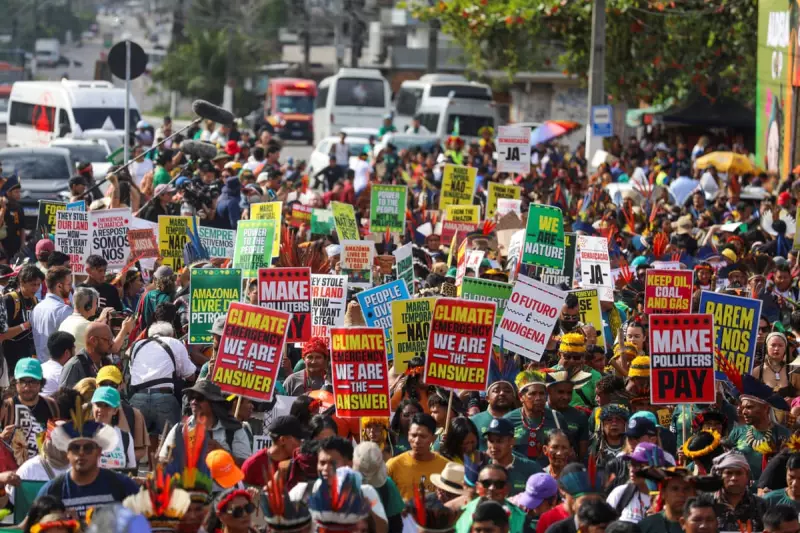
An explosive investigation has uncovered that more than 300 industrial agriculture lobbyists participated in this year's UN climate talks in Belém, Brazil, dramatically outnumbering delegations from climate-vulnerable nations.
Corporate Influence Overshadows Climate Action
The joint investigation by DeSmog and the Guardian reveals the number of lobbyists representing industrial cattle farming, commodity grains and pesticides has increased by 14% compared to last year's summit in Baku. This corporate delegation is larger than Canada's official contingent of 220 delegates, despite Canada being the world's tenth largest economy.
Alarmingly, 77 of these agribusiness lobbyists gained access as part of official country delegations, with six obtaining privileged access to the core negotiations where ambitious climate policies are being debated.
Agriculture's Devastating Climate Impact
The industrial agriculture sector is responsible for a quarter to a third of global emissions, with scientists warning that meeting Paris Agreement goals is impossible without radical changes to food production and consumption.
Cattle ranching remains the primary driver of Amazon deforestation, followed by industrial soy production primarily used for animal feed. Research indicates that up to half of the Amazon rainforest could reach a tipping point by 2050 due to water stress, land clearance and climate disruption.
Vandria Borari of the Borari Kuximawara Indigenous Association condemned the situation, stating: "More than 300 agribusiness lobbyists occupy the space at Cop30 that should belong to the forest peoples. While they talk about energy transition, they release oil into the Amazon's basin and privatize rivers like the Tapajós for soy. For us, this is not development, it is violence."
Meat, Dairy and Pesticide Giants Dominate
The analysis of the UNFCCC's provisional list of 56,000 Cop30 delegates shows meat and dairy companies sent 72 representatives - almost double Jamaica's delegation, despite the Caribbean nation being devastated by Hurricane Melissa last month.
JBS, the world's largest meat company accounting for 24% of the sector's emissions, sent eight lobbyists including CEO Gilberto Tomazoni. According to Friends of the Earth US, emissions from the 45 largest meat and dairy companies equal those of Saudi Arabia.
Pesticide giant Bayer deployed 19 lobbyists, the highest single corporate representation, while Nestlé sent nine delegates. The biofuels sector showed the most dramatic increase with 38 representatives - a 138% jump since last year's summit.
Lidy Nacpil of the Asian Peoples' Movement on Debt and Development warned: "These findings are proof that industrial agriculture has been allowed to co-opt the climate convention. Cop will never deliver real climate action as long as industry lobbyists are allowed to influence governments and negotiators."
The revelations come amid growing frustration at corporate access to climate negotiations, with the industrialised food sector having celebrated the lack of binding targets on emissions reductions or meat consumption at previous summits.





